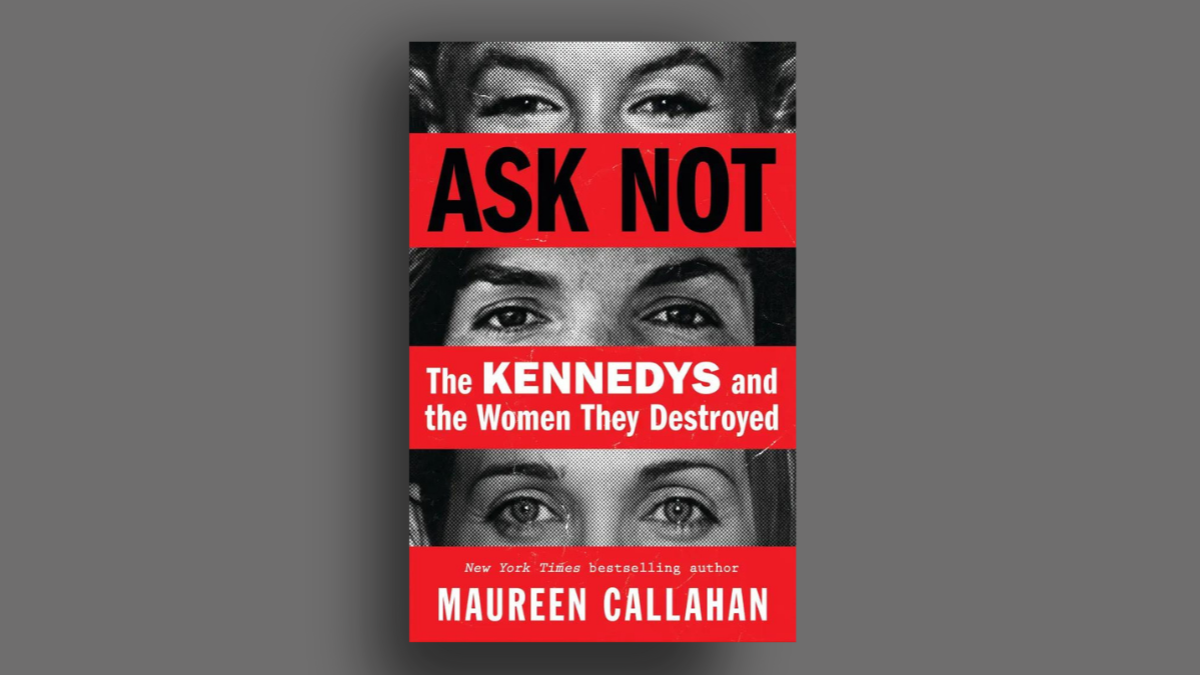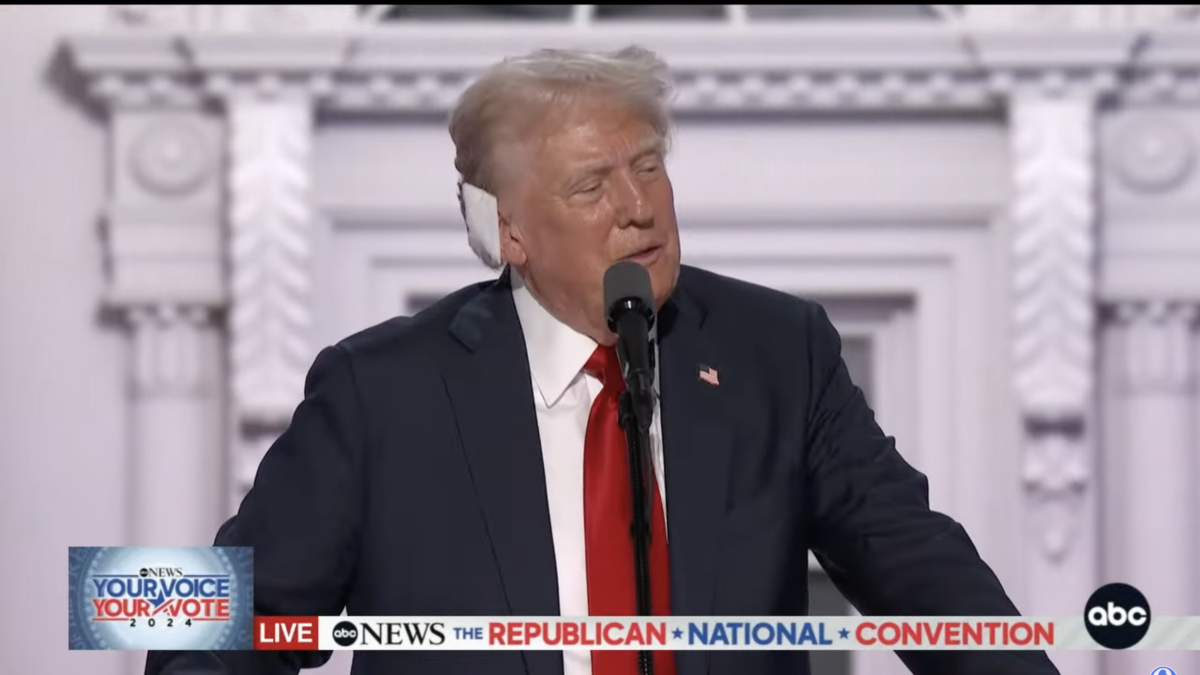
People say a lot of things about politicians. One of those things is never, “I miss that person and I wish he were still in Washington.” Well, we may have to make an exception for former Oklahoma senator Tom Coburn. For Republicans concerned about exorbitant federal spending and congressional abuses of authority, the affection is obvious. Even liberals have to concede that Coburn was that rare creature, a swamp-dwelling unicorn who stuck to his principles and and cared more about getting things done and fixing problems above all else.
Coburn’s latest book, Smashing the DC Monopoly: Using Article v to Restore Freedom and Stop Runaway Government, is also rarity in and of itself: a book written by a politician that’s worth reading. That’s because Coburn pulls no punches in spelling out exactly what’s wrong with Washington. In fact, after Coburn’s 2003 book Breach of Trust: How Washington Turns Outsiders Into Insiders, The New York Times reported that the book had ruffled feathers on Capitol Hill because he had the gall to actually criticize “Republican leaders, whom he singles out by name, [for being] more concerned with being re-elected than with spending tax dollars wisely.”
Accordingly, in Smashing the DC Monopoly Coburn recounts subsequent episodes from his Senate career where Coburn’s insistence that Congress act transparently and responsibly infuriated his colleagues, earning the M.D. the nickname “Dr. No.”
Alaska Senator Ted Stevens once said he would “be taken out of here on a stretcher” if Coburn succeeded in denying him an egregious $450 million earmark for his home state. Coburn’s amendment to deny Stevens the earmark that day failed, because of course it did. Nonetheless, Coburn lost the battle but won the war. His leadership in opposing earmarks made them an issue with Tea Party voters, and years later Congress abandoned the practice.
Money Is the Root of All Federal Evils
Coburn’s book does plenty of dishing on dysfunction in the cloakrooms, but that’s not really what it’s about. The book really serves two purposes. The first is to convince ordinary Americans that the problems in Washington are so dire they require dramatic action that elected politicians are unwilling to take. The second is to explain how ordinary voters and state politicians have the power to exploit an obscure constitutional process, known as an Article V convention, to bypass Washington and amend the Constitution to institute badly needed reforms, such as a balanced budget amendment and term limits.
On the first point, Coburn has an exceptionally clear grasp of constitutional principles. That is good, because while ordinary Americans are probably well aware that the federal government has created monumental problems, the causes and solutions aren’t immediately obvious without some necessary civic education, involving both practical and theoretical matters.
Coburn spent his entire congressional career assiduously crunching the numbers on federal spending, and he’s likely to scare readers as much as educate them. He also busts more than a few myths along the way. You know that liberal bumper sticker about how it will be a great day when the Pentagon has to hold a bake sale to buy bombers? Well, that day is probably coming, and it’s because we racked up $20 trillion in debt, overwhelmingly thanks to welfare and entitlement programs.
“Reflecting the nation’s new priorities, the two-to-one defense dollars to domestic entitlements in 1961 [when Eisenhower warned of the “military-industrial complex”] had been more than reversed by 2010 with a three-to-one ratio of transfer payments to national defense spending,” he writes. “It should be noted that the Constitution specifically empowers the federal government to provide for the nation’s defense but nowhere cites spending taxpayer dollars on entitlement programs.” Liberals can take heart in the fact that Coburn also has a strong track record of telling the Pentagon to tighten its belt, in addition to warning about entitlement and welfare program spending.
However, they are probably less inclined to concede that the constant growth of the welfare state produces inversely diminishing returns. “In 1966 when the massive means-tested entitlements to address the poor began, the overall poverty rate in the United States was 14.7 percent,” Coburn notes. “In 2013, and more than $15 trillion later, the poverty rate was measured at 14.5 percent. That could be a statistical error, rather than even this miniscule 0.2 percent decline.”
Coburn even makes a convincing argument that the culture war is largely a result of America not having its fiscal house in order. “The shrillness on talk shows and the chaotic demonstrations in large cities and on college campuses reached a fever pitch in 2016 not seen since the Vietnam War years,” he writes. “The rancor in the late 1960s was largely about American sacrifices in a foreign war; the disagreements today are rooted in who gets what from government and how we pay for it.”
But you don’t have to take Coburn’s word for it; one of the other strengths of Smashing the DC Monopoly is Coburn’s grasp of history. To underscore this point about debt and taxation’s deleterious effects on society, he unearths this cutting Thomas Jefferson quote: “Then begins, indeed, the bellum omnium in omnia [war of all against all], which some philosophers observing to be so general in this world, have mistaken it for the natural, instead of the abusive state of man. And the fore horse of this frightful team is public debt. Taxation follows that, and in its train wretchedness and oppression.” Again and again, Coburn demonstrates that the American founders would likely be appalled by what’s become of their republic.
The Article V Convention
Much of the book, however, is dedicated to explaining what Coburn believes is America’s last best hope: an Article V convention. While it’s well-known that constitutional amendments Congress passes have to be ratified by the states, hardly any Americans are aware that the Constitution includes a provision that allows “the application of the legislatures of two thirds of the several states [to] call a convention for proposing amendments, which, in either case, shall be valid to all intents and purposes, as part of this Constitution, when ratified by the legislatures of three fourths of the several states.” In other words, if the structural incentives in Washington are such that members of Congress won’t, say, willingly vote themselves out of office by passing term limits, state legislatures can force it on them.
Coburn makes a convincing case that the founders always intended this provision to be a significant check on the growth and abuses of the federal government, and it’s actually surprising that this method for passing amendments has never been exercised. Hamilton argued in the Federalist papers that this mechanism was put in place so Americans could “safely rely on the disposition of the state legislatures to erect barriers against the encroachments of the national authority.”
Beyond that, Coburn spends some time justifying an Article V convention by looking at the history of interstate compacts and agreements—his recounting of the history of the Colorado River Commission in the early twentieth century is a very illuminating bit of arcana that certainly suggests states could do a lot more to bypass the federal government. He also spends some time demonstrating how state governments are pointing the way toward combating prolifigacy and governmental growth, thus making states better suited to rein in the federal government.
Here Coburn, who is not the type to give politicians plaudits, praises the heck out of former Indiana governor Mitch Daniels, who managed to eliminate his state’s massive debts, reduce the state’s bloated workforce considerably, and remain wildly popular with voters. It’s not that Coburn doesn’t likely admire the rhetoric of chest-beating constitutionalists such as Ted Cruz and Mike Lee. It’s just that he places a real premium on actual accomplishments, so praise for the laconic Daniels makes a lot of sense: “[Daniels] has a stock answer when he hears citizens voice fears of cutbacks in public spending: ‘You’d be amazed how much government you’d never miss.'”
As compelling as all this is, there’s a fairly big elephant in the room here for anyone arguing that states should get together to amend the Constitution. There’s never been an Article V convention, so no one knows exactly what it would or should look like. There’s a lot of machinations involved and issues to address that are too much to summarize, but Coburn does his level best to lay out a vision for how an Article V convention would be held that is grounded in the constitution and legal principles. If the goal was to convince readers that far from some anachronistic quirk of American governance, an Article V convention is actually doable, he succeeds admirably.
Stronger Medicine
That’s not to say that an Article V convention is likely to happen anytime soon. There’s been some chatter about it in recent years, as local Democrats were so devastated in the Obama years that the GOP actually came close to controlling enough state legislatures to meet the two-thirds threshold necessary for calling an Article V convention. But as the recent Virginia election suggests, the political momentum may now be headed the other way.
Further, political polarization may make it effectively impossible to do anything notable. Three-fourths of the states still have to ratify any proposed amendments, and it’s hard to imagine a Democratic legislature rubber-stamping a balanced budget amendment amid the hysterical rhetorical assault of thousands of grandmothers in wheelchairs being shoved off cliffs like so many lemmings.
If anything, an Article V convention seems more likely to be embraced as a means of fixing some kind of national fiscal crisis, which is far more likely than Washington wants to admit. A not-unthinkable uptick in what we’re paying to service our debt, and whoops there goes all defense and discretionary spending. (As it happens, in 2012 Coburn also wrote The Debt Bomb, a book about how precisely this sort of fiscal crisis could easily turn the world’s largest economy into Greece, and with all the terrifying geopolitical ramifications that implies.)
Then again, no one thought Coburn would ever get Congress to voluntarily abandon earmarks, and here we are. Smashing the DC Monopoly might prove to be the first step in the long march to restoring a meaningful amount of responsibility and liberty in America. In the meantime, Coburn has another message for the Trump-era that GOP voters would be wise to heed.
“America needs stronger medicine than what Donald Trump or any president can administer,” he writes. “We need the structural changes from an amendments convention of state delegates because our constitutional system of governance has been thrown too far out of balance by ambitious politicians and overreaching courts. The incremental changes from political elections barely affect the entrenched bureaucrats and pandering politicians in our nation’s capital. The Constitution—originally designed to limit and contain political ambition and federal overreach—has been distorted and bypassed, leaving a polarized nation with an onrushing fiscal crisis.”
A lot of people voted for Trump on the belief that he would bring truly radical change to Washington, and undoubtedly Coburn has applauded at least some of his swamp-draining. Trump notwithstanding, Coburn is still right to point out that so much of what’s happening in DC is still funny business as usual. That’s because, as ever, the ultimate problem with American politics is us. If you deny that a solution to our perilous predicament won’t be found in Washington, well, Tom Coburn would like to have several thousand words with you—and carving out a few hours to read Smashing the DC Monopoly is well worth your time.









